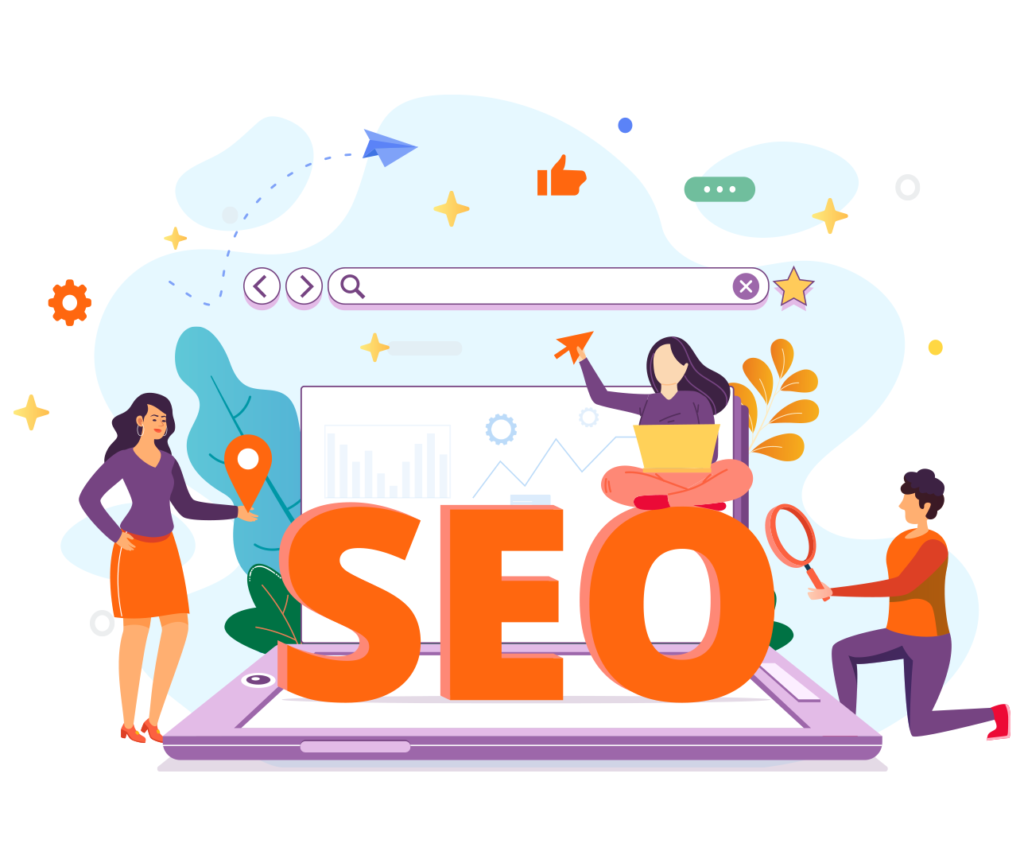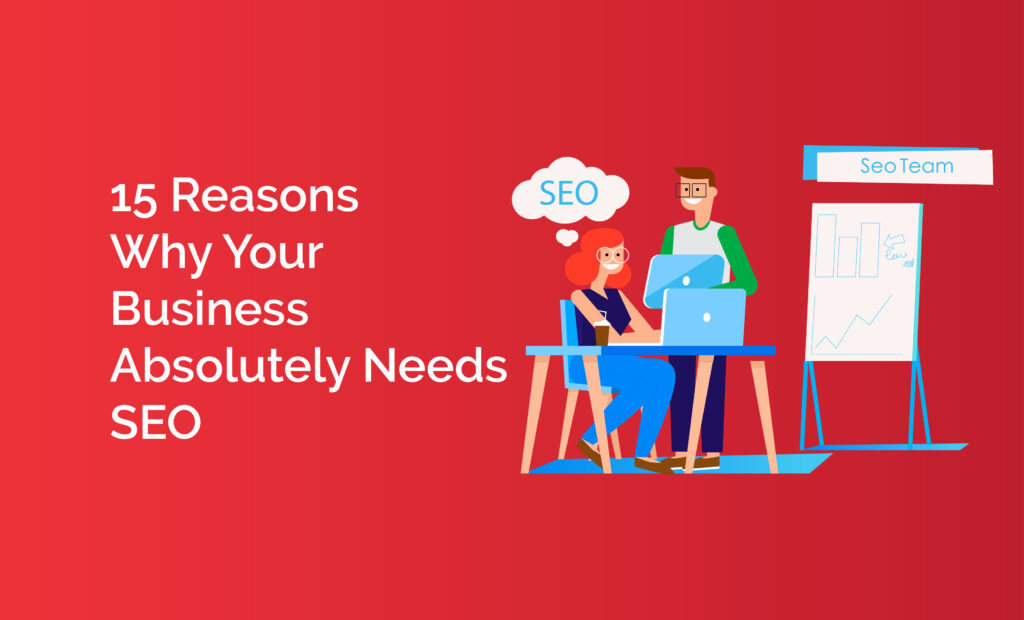Businesses require SEO to efficiently and cost-effectively engage with customers at critical stages of their user journeys. The sooner they adopt it, the better positioned they’ll be. The demand for high-quality Search Engine Optimization is escalating.
When these emerging technologies intersect with the disruptive years characterized by the COVID pandemic – during which millions of consumers shifted online for transactions, purchases, and entertainment – the significance of SEO in modern marketing becomes apparent.
1. The Significance of Organic Search in Website Traffic
Organic search plays a pivotal role in driving traffic to most businesses’ websites and is a crucial element of the buyer journey, guiding users towards conversions or engagements.
YouTube, the second-largest search engine, boasts at least 2.5 billion monthly users, or 122 million daily users.
Given the internet’s widespread usage, it’s evident that a significant majority of users visit Google daily for information.
Maintaining high visibility as a trusted resource across Google and other search engines is advantageous for brands, achievable through quality SEO and a top-notch website.
2. The Role of SEO in Establishing Trust and Credibility
Building trust and credibility for brands is a gradual process, akin to real-life interactions, and is increasingly challenging amid the ongoing AI revolution.
Adhering to Google’s E-A-T guidelines is crucial for ensuring successful content creation.
Experienced SEO professionals aim to establish a robust foundation of trust and credibility for clients, facilitated by a well-designed website offering a seamless user experience.
Establishing a brand as an authority requires patience, dedication, and a commitment to delivering valuable products or services that inspire customer trust.

Why Business Needs SEO
3. The Increasing Complexity of the AI Landscape
With the rapid integration of AI into everyday life and its widespread availability, the competition for visibility on search engine results pages (SERPs) has intensified significantly. Organic search space is gradually diminishing.
Bots, scrapers, and other AI-driven technologies are proliferating, often reproducing inaccurate or bewildering content, thereby saturating the competitive landscape with duplicated or subpar material.
Effective Search Engine Optimization practices, encompassing meticulous keyword research, industry analysis, and competitive benchmarking, empower brands to distinguish themselves from the flood of low-quality content that inundates SERPs daily.
4. The Integral Link Between SEO and User Experience
In the realm of marketing, enhancing user experience reigns supreme. While everyone aims for improved organic rankings and heightened visibility, many overlook the crucial role that user experience plays in achieving these goals.
Google’s continuous efforts to provide direct answers to search queries on the SERP underscore its commitment to delivering information swiftly and seamlessly, a trend that has evolved over years.
Furthermore, recognizing the value of Google’s on-the-SERP delivery tactics, SEO professionals aim to optimize high-value content to maintain traffic and engagement, even in the face of increasing competition from SERPs themselves.
5. Local SEO: Driving Engagement, Traffic, and Conversions
The pervasive mobile-centric mindset embraced by both users and search engines has underscored the pivotal role of local search for small- and medium-sized enterprises.
Local Search Engine Optimization endeavors to optimize digital assets for specific geographic regions, enabling swift and effortless discovery of businesses, thereby facilitating closer proximity to transactions.
Tailored local optimizations target distinct neighborhoods, towns, cities, regions, and even states, serving as a vital conduit for delivering brand messages at a local scale.
SEO professionals achieve this by refining a brand’s website and content, integrating local citations, backlinks, and regional listings pertinent to the brand’s location and industry.
6. SEO's Influence on the Buying Cycle
Research has become an indispensable facet of Search Engine Optimization, with real-time inquiry gaining prominence.
Leveraging SEO strategies to convey compelling messaging regarding deals, innovative products and services, and the value and reliability of offerings can significantly influence the buying cycle.
Effective implementation of SEO not only enhances brand visibility but also facilitates meaningful connections by ensuring brands are present where consumers seek answers.
Local SEO amplifies this visibility, enabling potential customers to access relevant information and discover businesses offering solutions to their needs.

Why Business Needs SEO
7. SEO: A Dynamic Landscape Requiring Continuous Adaptation
While implementing SEO tactics across a brand’s digital footprint is crucial, a short-term engagement without consistent reassessment may lead to stagnation or excessive investment to overcome obstacles.
The ever-evolving nature of the search landscape, predominantly governed by Google, necessitates ongoing monitoring to remain competitive and secure a prominent position on search engine results pages (SERPs).
Google’s frequent algorithm updates underscore the importance of staying abreast of changes to avoid falling behind, a task facilitated by Search Engine Optimization professionals.
8. Understanding SEO: Navigating the Web Environment
Navigating the dynamic landscape of the World Wide Web demands staying informed about ongoing changes, particularly in search algorithms, as highlighted by the AI renaissance.
Acquiring insights into the web environment, including the strategies adopted by local competitors and industry peers, empowers brands to make informed decisions and strengthen their online presence.
Analyzing successes and failures within the search ecosystem enhances brand resilience and effectiveness in reaching target audiences.
9. SEO: Cost-Effective Business Investment
SEO represents a relatively inexpensive yet highly impactful investment for businesses, offering substantial long-term benefits to the bottom line.
Effective Search Engine Optimization strategies maintain their efficacy over time, serving as a valuable business asset rather than a mere marketing expense.
With scalability, measurability, and enduring value, SEO remains a sound investment that appreciates attention and investment. Check here for further SEO tools
10. SEO: A Strategic Investment for Long-Term Success
Implementing SEO strategies can yield noticeable results within the first year, with many actions leaving a lasting impact. Staying abreast of market trends is essential as the landscape evolves.
Even modest SEO efforts can enhance a website’s performance when coupled with basic best practices and a user-friendly experience.
Committing time, effort, and resources to SEO enhances a website’s competitiveness and longevity in its market, ensuring sustained success and relevance.
11. Measuring SEO Impact
While quantifying Search Engine Optimization ROI may not be as straightforward as with paid search, proper tracking and analytics enable comprehensive measurement of outcomes.
Although connecting all actions to performance can be challenging, advancements in tracking technology facilitate better understanding and optimization of SEO efforts.
Brands benefit from understanding their digital performance trajectory, especially concerning SEO, as it showcases the effectiveness of their strategies and investments.

12. Search Engine Optimization as Brand Building
Search Engine Optimization plays a crucial role in establishing long-term brand equity by boosting visibility and credibility.
A strong SEO presence ensures favorable brand recognition, making it easier for consumers to find and engage with positive brand content.
By prioritizing user experience and integrating with content and PR initiatives, SEO contributes to broader brand reach and awareness.
13. Unveiling Opportunities with SEO
Quality SEO practices enable brands to uncover and leverage new opportunities, enhancing visibility and relevance in a competitive landscape.
Experienced SEO professionals help distill vast amounts of online content, providing insights into consumer behavior and market trends.
Search Engine Optimization data offers valuable insights into user intent and behavior, guiding strategic decision-making and facilitating brand growth.
14. Securing Visibility on SERPs: Adapting to Zero-Click Results:
As zero-click SERPs become prevalent, securing a position on the first page of search results is critical for winning user clicks.
Adapting Search Engine Optimization strategies to evolving search trends ensures continued visibility and competitiveness in the digital arena.
15. The Enduring Value of SEO
Despite evolving strategies and technologies, SEO remains a cornerstone of digital marketing, ensuring brands connect with consumers effectively and affordably.
As consumer demand for online products and services persists, SEO will continue to evolve and adapt to new entry points and technologies.
By staying updated and embracing innovative approaches, brands can capitalize on emerging Search Engine Optimization opportunities and drive long-term success in the digital landscape.

